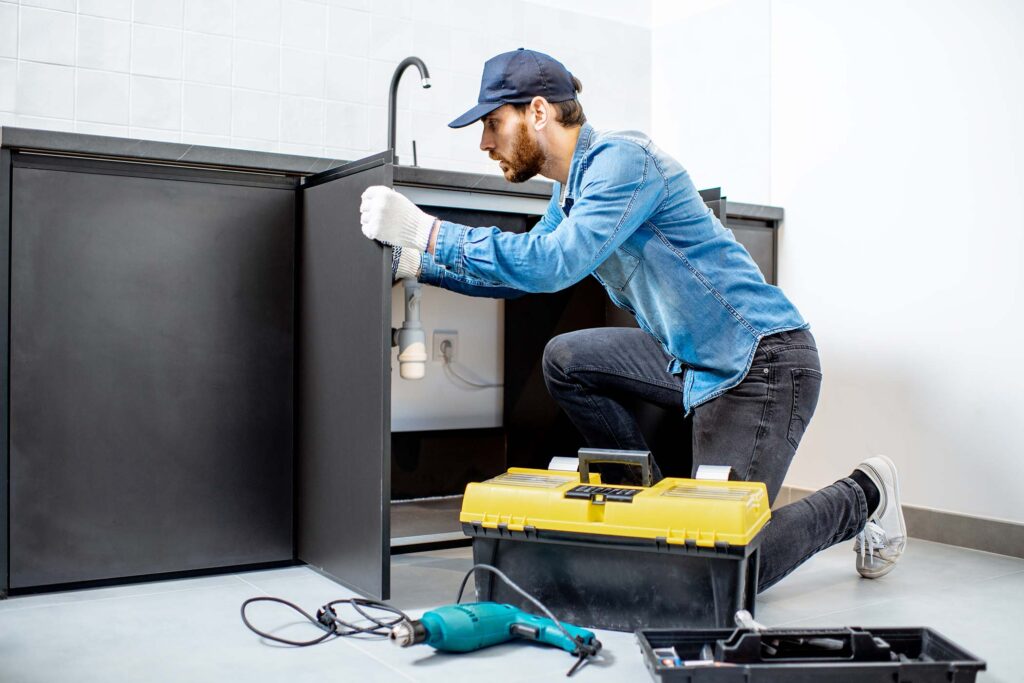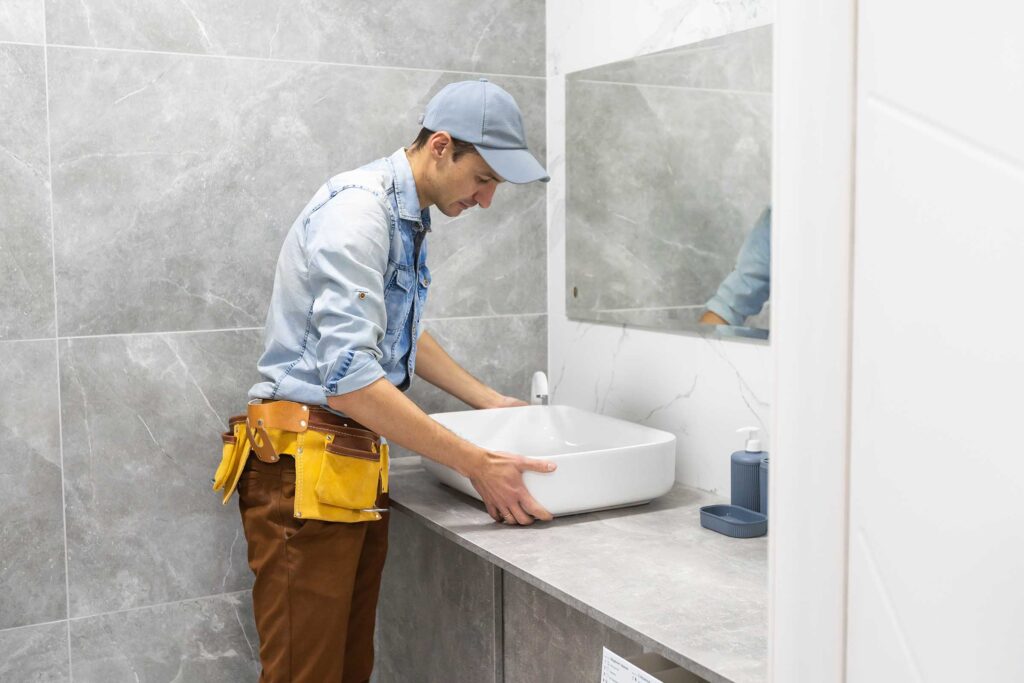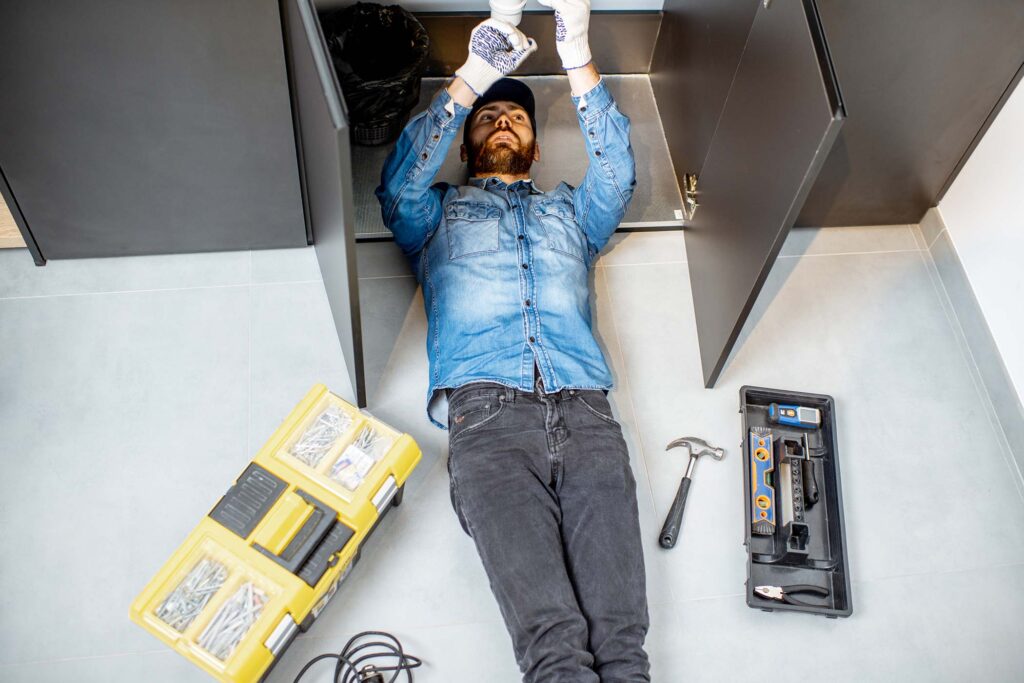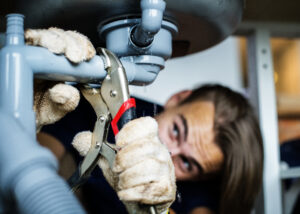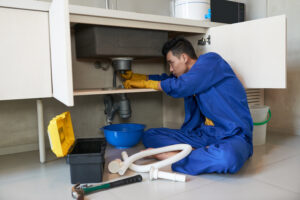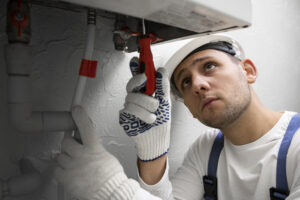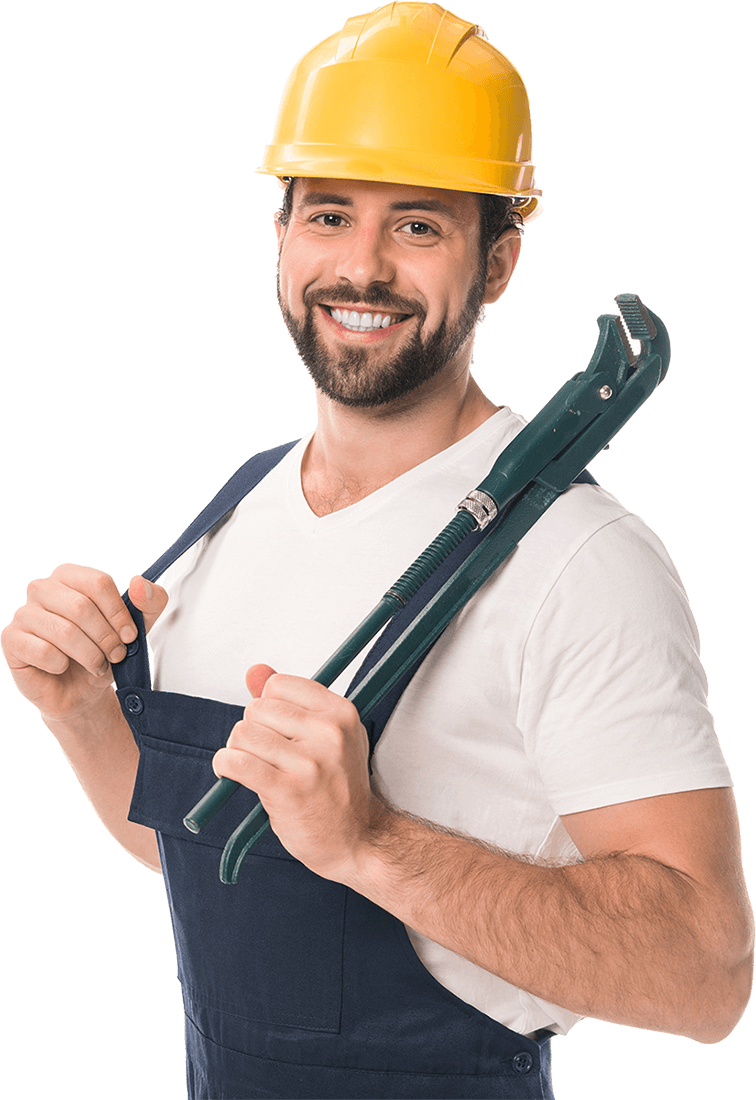
Image by rawpixel.com on Freepik
Plumbing leaks are often overlooked until they cause serious damage, leading to costly repairs and potential health hazards like mold. The good news is that with the right knowledge, you can spot the early signs of leaks and take action before they become major problems. In this blog, we’ll discuss how to identify plumbing leaks and the steps you can take to prevent them before they escalate into bigger issues.
Signs of a Plumbing Leak
The first step to preventing plumbing leaks is identifying the early warning signs. If you notice any of these indicators, it may be time to investigate further:
- Unexplained Water Bills – A sudden increase in your water bill can signal a leak somewhere in your plumbing system. If you’re using more water than expected but haven’t changed your habits, there’s a possibility that a hidden leak is responsible.
- Wet Spots and Water Stains – Look for wet spots or stains on walls, floors, or ceilings. These are usually caused by water that’s leaking from pipes inside the walls or under the floor. Even if the stains are small, don’t ignore them—they can be the first sign of a more significant problem.
- Musty Odors – Dampness usually leads to mold growth, which can produce musty odors. If you notice such smells in areas like your basement, bathroom, or kitchen, you might have a plumbing leak causing moisture buildup.
- Sound of Running Water – If you hear running water when no taps are open, it could indicate a pipe leak. Pay attention to the sounds and identify where they are coming from. This can be a clue to the location of the leak.
How to Detect Plumbing Leaks
To accurately detect plumbing leaks, here are a few useful steps:
- Use Your Water Meter – One of the best ways to check for plumbing leaks is to use your water meter. First, ensure no water is used in your home (no appliances, faucets, or toilets running). Then, check the meter to see if it’s still moving. If it is, this indicates a leak somewhere in your plumbing system.
- Look for Hidden Leaks –Leaks aren’t always visible. Plumbing pipes hidden under floors or behind walls can develop slow leaks that go overlooked for long periods. You may need to hire a professional plumber to perform a more detailed inspection with specialized equipment like moisture meters or thermal cameras.
- Check Your Toilets – Toilets are often a major source of plumbing leaks. Add a few drops of food coloring to the tank to check for a hidden toilet leak. If the color appears in the bowl after 30 minutes without flushing, you have a leak in your toilet’s flapper or valve.
Preventing Plumbing Leaks
Once you’ve identified a leak or learned to identify the signs of potential leaks, it’s time to take steps to prevent them. Regular maintenance and some smart habits can go a long way in keeping your plumbing system in top shape.
- Schedule Regular Inspections – It’s wise to have your plumbing system inspected annually by a licensed plumber. A professional can identify early signs of leaks or potential problems with your pipes before they become a serious problem.
- Keep Pipes Insulated – During the colder months, frozen pipes significantly cause plumbing leaks. Ensure your pipes are insulated, especially in unheated areas like attics or basements.
- Be Mindful of What You Put Down the Drain – Prevent drain blockages by avoiding putting large food particles, grease, or non-degradable items down your drain. Clogs can cause blockages and pressure in your pipes, which can lead to leaks over time. Consider hiring professionals for plumbing and drain cleaning if you notice your drains are frequently clogged or slow.
- Fix Minor Leaks Immediately – Even small leaks must be addressed immediately. A leaky hose, a dripping faucet, or a dripping showerhead may appear insignificant, but they can waste hundreds of gallons of water over time, contributing to more serious damage.
- Check Your Water Pressure – High water pressure can strain your pipes and increase the risk of leaks. If your water pressure is too high, it may be worth installing a pressure regulator to keep it in check.
Why Professional Plumbing Services Matter
While it’s possible to handle some plumbing maintenance on your own, there are times when professional help is required. Hiring a skilled plumber ensures that your plumbing system is functioning properly and that you can prevent any leaks from becoming an expensive problem.At Chicago Plumbing, we understand how important it is to detect and prevent plumbing leaks early. With our expert team and comprehensive plumbing services, we’re here to help you maintain a safe, leak-free home. We offer various plumbing solutions, from leak detection to regular maintenance, to ensure your system is always in top condition. Our professional plumbers are always ready to help you with expert advice, effective repairs, and reliable service. Don’t wait for a small issue to become a major problem—contact us today, and let us take care of all your plumbing needs.
